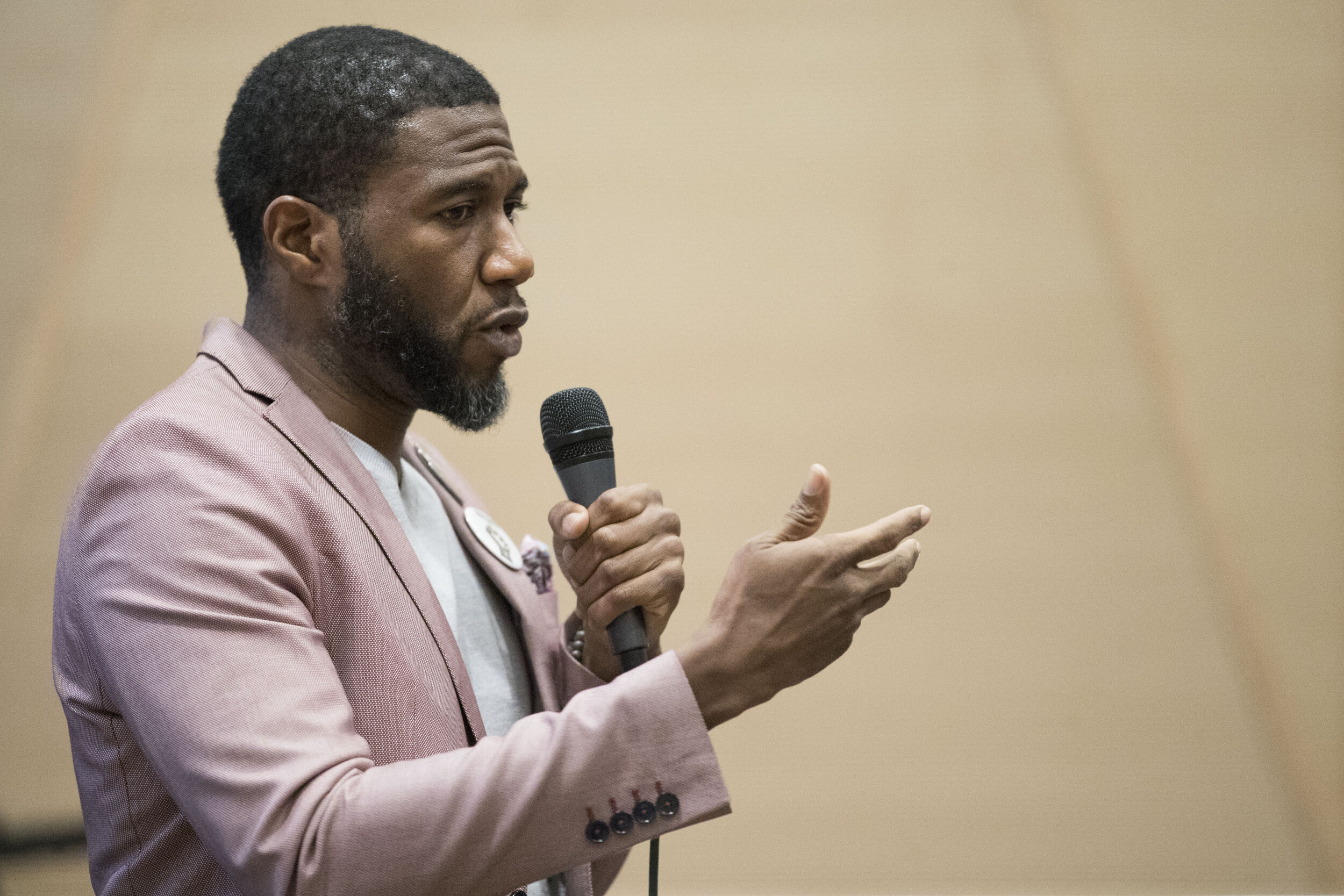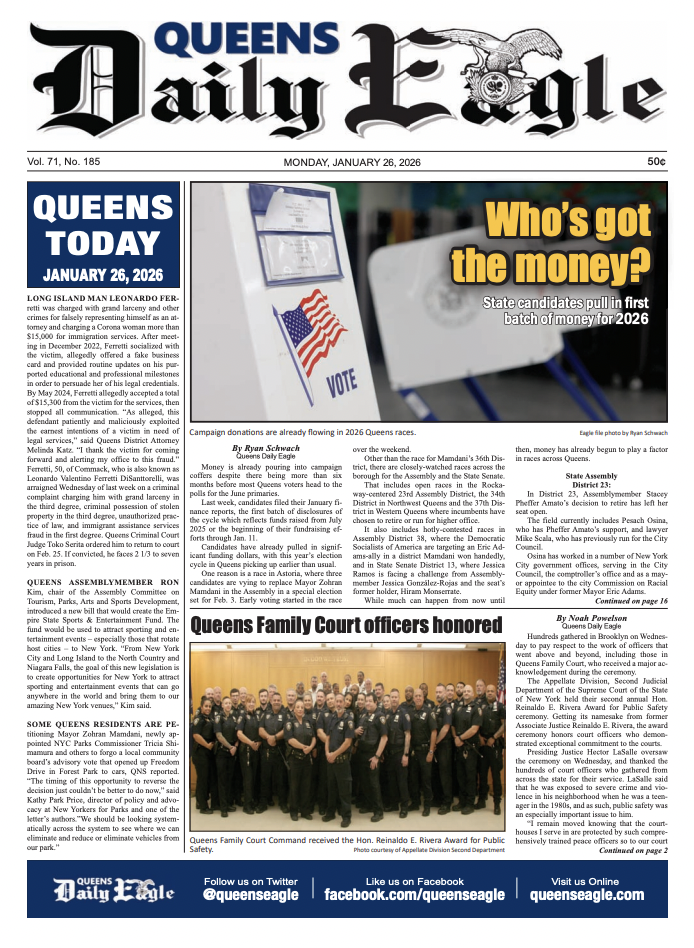City Council creates more programming on Rikers
/Public Advocate Jumaane Williams introduced two bills to offer expanded programing to incarcerated people on Rikers Island. AP Photo/Mary Altaffer
By Jacob Kaye
The New York City Council heard the introduction of several bills – and passed one – last week aimed at increasing programs offered to incarcerated people in the city’s jails.
Three bills in total, considered by the council on Thursday, Aug. 26, seek to offer more services to incarcerated people.
The legislative package includes a bill that would require the New York City Department of Correction screen incoming detainees for dyslexia, a bill that would require the DOC to produce reports on voter registration inside the city’s jail and a bill that would offer pregnant incarcerated people the opportunity to use a doula when giving birth.
The dyslexia bill, introduced by Public Advocate Jumaane Williams, would require that the DOC screen all incarcerated people who do not have a high school diploma or a GED for dyslexia within 72 hours after intake.
Additionally, the bill would require that the Department of Education team up with DOC to offer programs to treat incarcerated people diagnosed with dyslexia. It adds that a report must be written up every year, beginning in January 2022, listing the number of people screened, diagnosed, and treated, as well as a summary of the programs available inside the jail.
The bill quickly received support from Democratic Mayoral Candidate Eric Adams, who has made identifying and treating dyslexia one of his pet issues while on the campaign trail.
“Should dyslexia screenings be mandatory at Rikers? Absolutely,” Adams said on Twitter. “We must start screening for dyslexia earlier in life before this challenge leads to avoidable negative outcomes.”
A 2015 report from the U.S. Department of Justice found that around 40 percent of incarcerated people in local jails and 32 percent of incarcerated people in state and federal prisons reported having at least one disability, including learning disabilities. Incarcerated people were three to four times more likely to report having a disability than the general population, according to the report.
The second bill introduced by the public advocate would require that the DOC publish an annual report on the number of events held in the city’s jails to promote voter registration and voting, the number of completed voter registration forms and the number of absentee ballots the DOC distributes to incarcerated people.
The City Council voted to pass a bill from Manhattan Councilmember Helen Rosenthal which would require the DOC to retain an organization to provide doula services to incarcerated people twice a week and during labor and delivery.
The bill would also require the DOC to issue a report on the doula program every six months as well as to create a working group to review the program.
Rosenthal’s bill, which she said would be one of the first of its kind in the country, received support from a number of Queens councilmembers, including Councilmembers Selvena Brooks-Powers, Karen Koslowitz and James Gennaro.
“Incarcerated people who are pregnant or who have recently given birth are highly vulnerable and often lack access to proper medical and mental health care,” Rosenthal said. “If you are incarcerated and Black or Latinx, you are even more at risk.”
“By increasing critical maternal services for women incarcerated on Rikers Island we’re chipping away at the enormous health equity issues faced by women, particularly women of color,” she added, noting that Black women in New York City are eight to 12 times more likely to suffer poor maternal outcomes when compared to their white counterparts.
Rosenthal’s bill was unanimously passed by the City Council.




